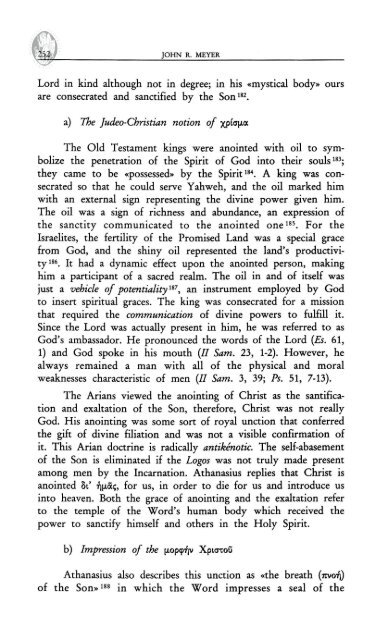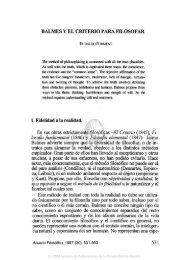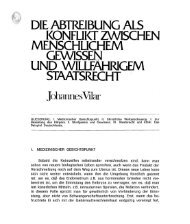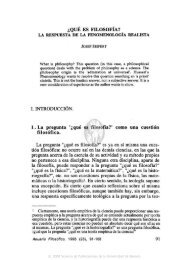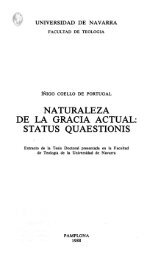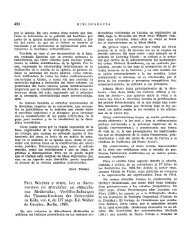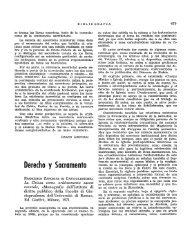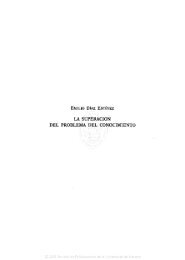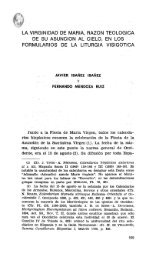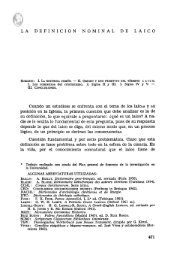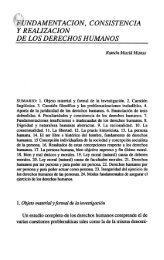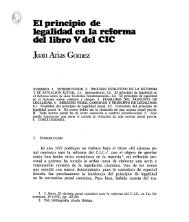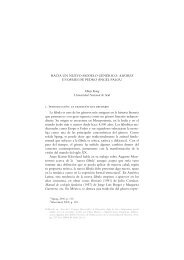the soteriology of saint athanasius of alexandria the conformation of ...
the soteriology of saint athanasius of alexandria the conformation of ...
the soteriology of saint athanasius of alexandria the conformation of ...
You also want an ePaper? Increase the reach of your titles
YUMPU automatically turns print PDFs into web optimized ePapers that Google loves.
252 JOHN R. MEYER<br />
Lord in kind although not in degree; in his «mystical body» ours<br />
are consecrated and sanctified by <strong>the</strong> Son 182 .<br />
a) The Judeo-Christian notion <strong>of</strong> XP^R*<br />
The Old Testament kings were anointed with oil to symbolize<br />
<strong>the</strong> penetration <strong>of</strong> <strong>the</strong> Spirit <strong>of</strong> God into <strong>the</strong>ir souls ;<br />
183<br />
<strong>the</strong>y came to be «possessed» by <strong>the</strong> Spirit . A king was consecrated<br />
so that he could serve Yahweh, and <strong>the</strong> oil marked him<br />
184<br />
with an external sign representing <strong>the</strong> divine power given him.<br />
The oil was a sign <strong>of</strong> richness and abundance, an expression <strong>of</strong><br />
<strong>the</strong> sanctity communicated to <strong>the</strong> anointed one . For <strong>the</strong><br />
185<br />
Israelites, <strong>the</strong> fertility <strong>of</strong> <strong>the</strong> Promised Land was a special grace<br />
from God, and <strong>the</strong> shiny oil represented <strong>the</strong> land's productivity<br />
. It had a dynamic effect upon <strong>the</strong> anointed person, making<br />
186<br />
him a participant <strong>of</strong> a sacred realm. The oil in and <strong>of</strong> itself was<br />
just a vehicle <strong>of</strong> potentiality * , an instrument employed by God<br />
1 7<br />
to insert spiritual graces. The king was consecrated for a mission<br />
that required <strong>the</strong> communication <strong>of</strong> divine powers to fulfill it.<br />
Since <strong>the</strong> Lord was actually present in him, he was referred to as<br />
God's ambassador. He pronounced <strong>the</strong> words <strong>of</strong> <strong>the</strong> Lord (Es. 61,<br />
1) and God spoke in his mouth (// Sam. 23, 1-2). However, he<br />
always remained a man with all <strong>of</strong> <strong>the</strong> physical and moral<br />
weaknesses characteristic <strong>of</strong> men (// Sam. 3, 39; Ps. 51, 7-13).<br />
The Arians viewed <strong>the</strong> anointing <strong>of</strong> Christ as <strong>the</strong> santification<br />
and exaltation <strong>of</strong> <strong>the</strong> Son, <strong>the</strong>refore, Christ was not really<br />
God. His anointing was some sort <strong>of</strong> royal unction that conferred<br />
<strong>the</strong> gift <strong>of</strong> divine filiation and was not a visible confirmation <strong>of</strong><br />
it. This Arian doctrine is radically antikenotic. The self-abasement<br />
<strong>of</strong> <strong>the</strong> Son is eliminated if <strong>the</strong> Logos was not truly made present<br />
among men by <strong>the</strong> Incarnation. Athanasius replies that Christ is<br />
anointed 8i' ritxa?, for us, in order to die for us and introduce us<br />
into heaven. Both <strong>the</strong> grace <strong>of</strong> anointing and <strong>the</strong> exaltation refer<br />
to <strong>the</strong> temple <strong>of</strong> <strong>the</strong> Word's human body which received <strong>the</strong><br />
power to sanctify himself and o<strong>the</strong>rs in <strong>the</strong> Holy Spirit.<br />
b) Impression <strong>of</strong> <strong>the</strong> [i,op


